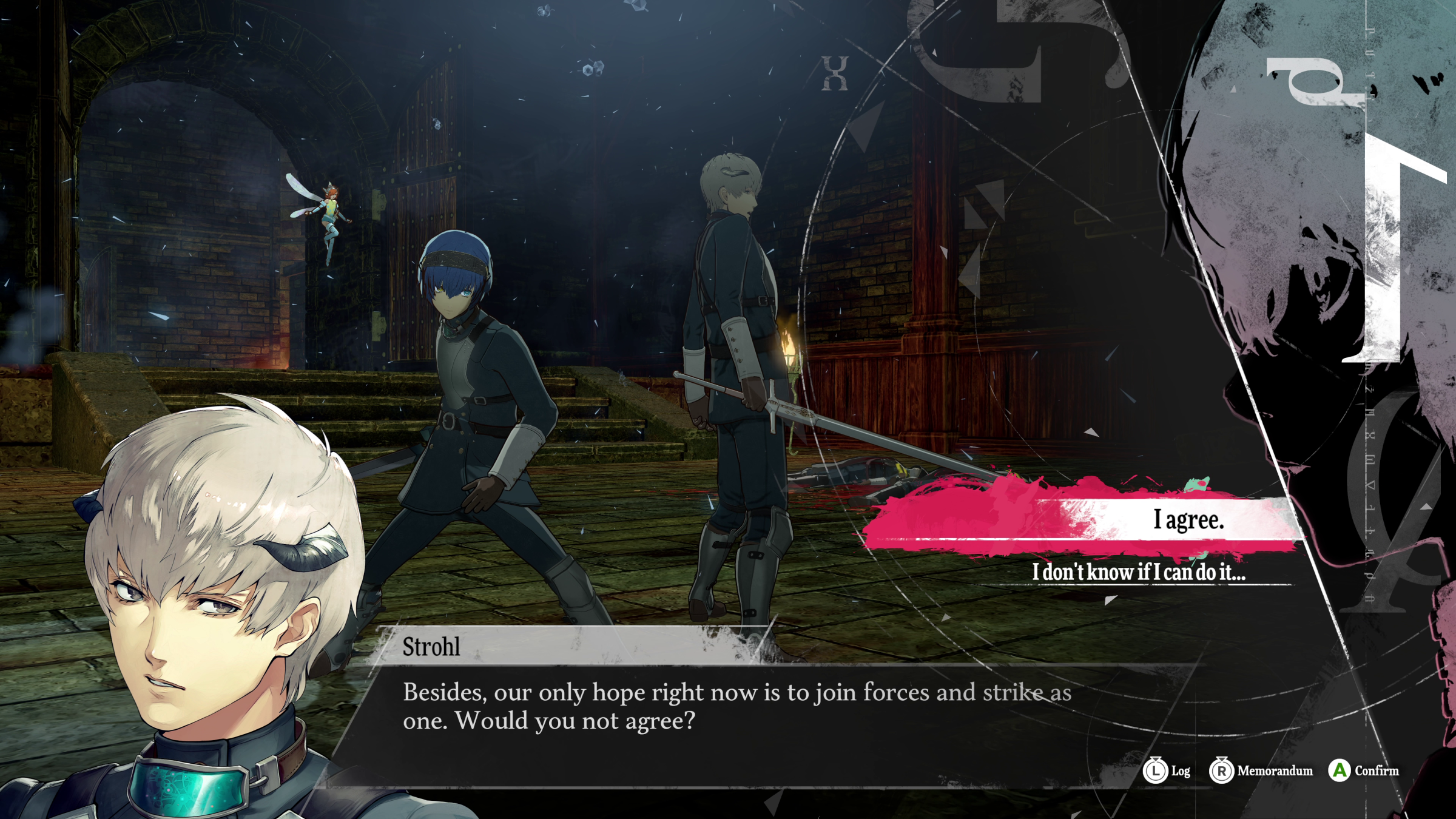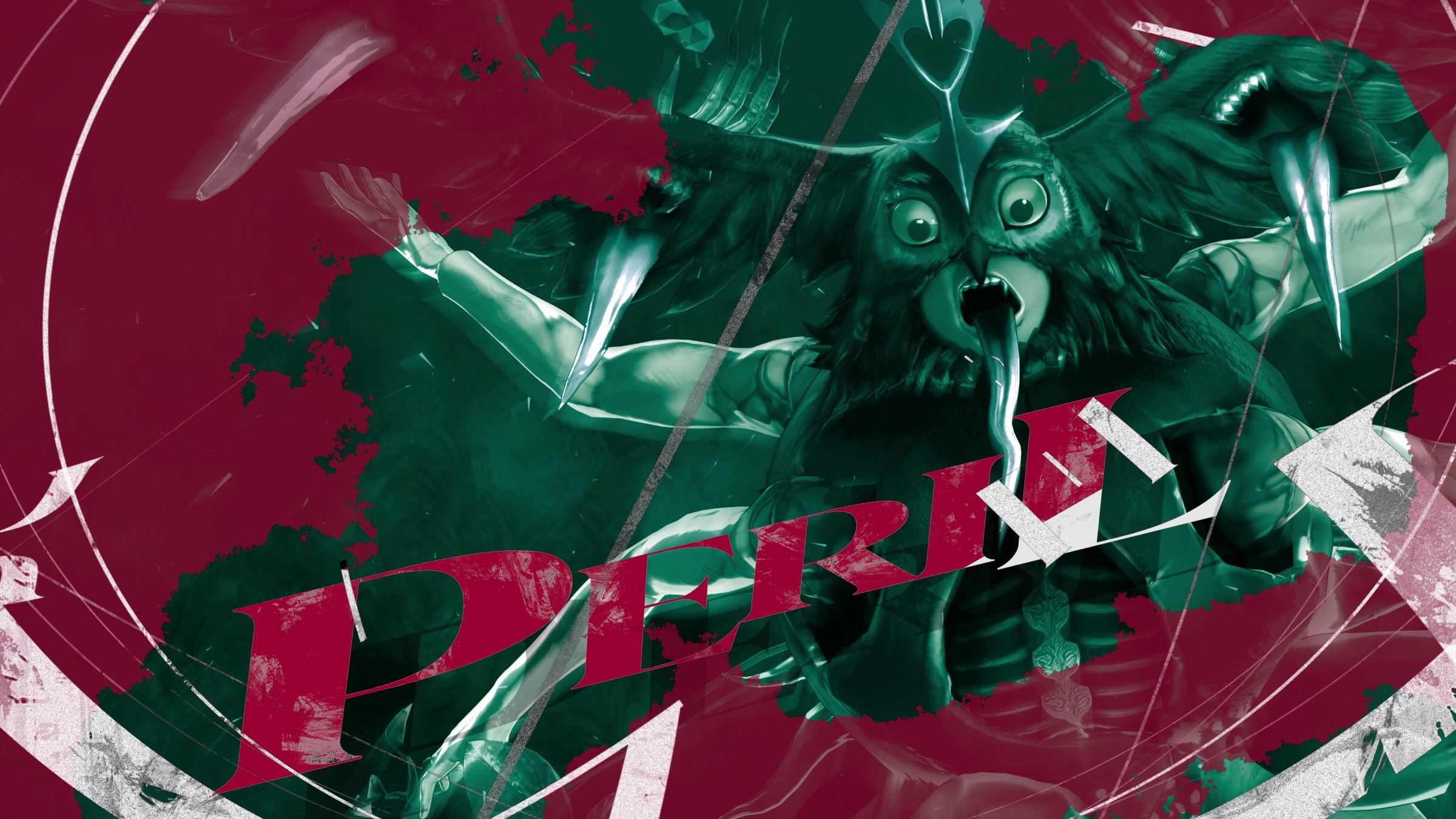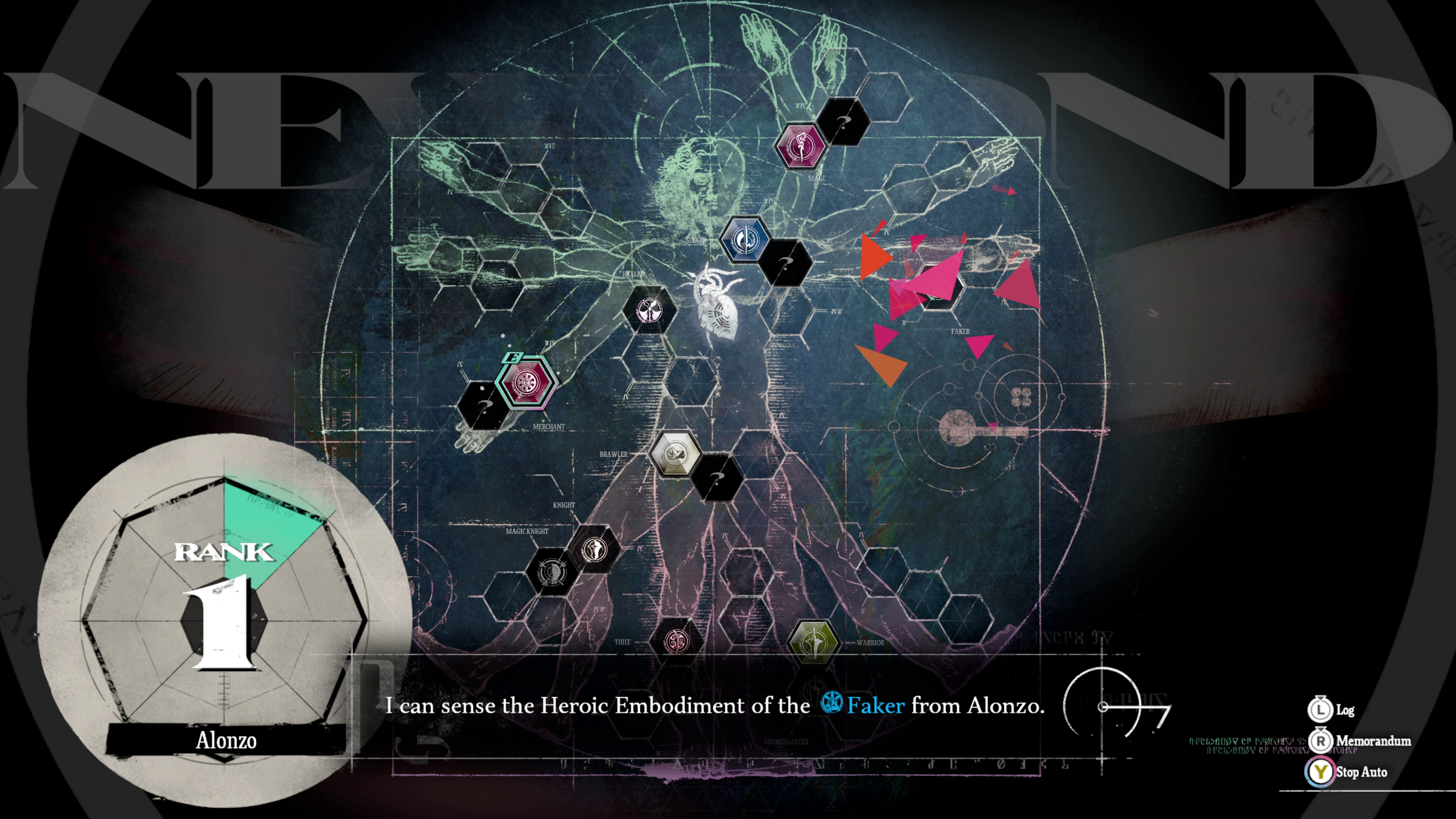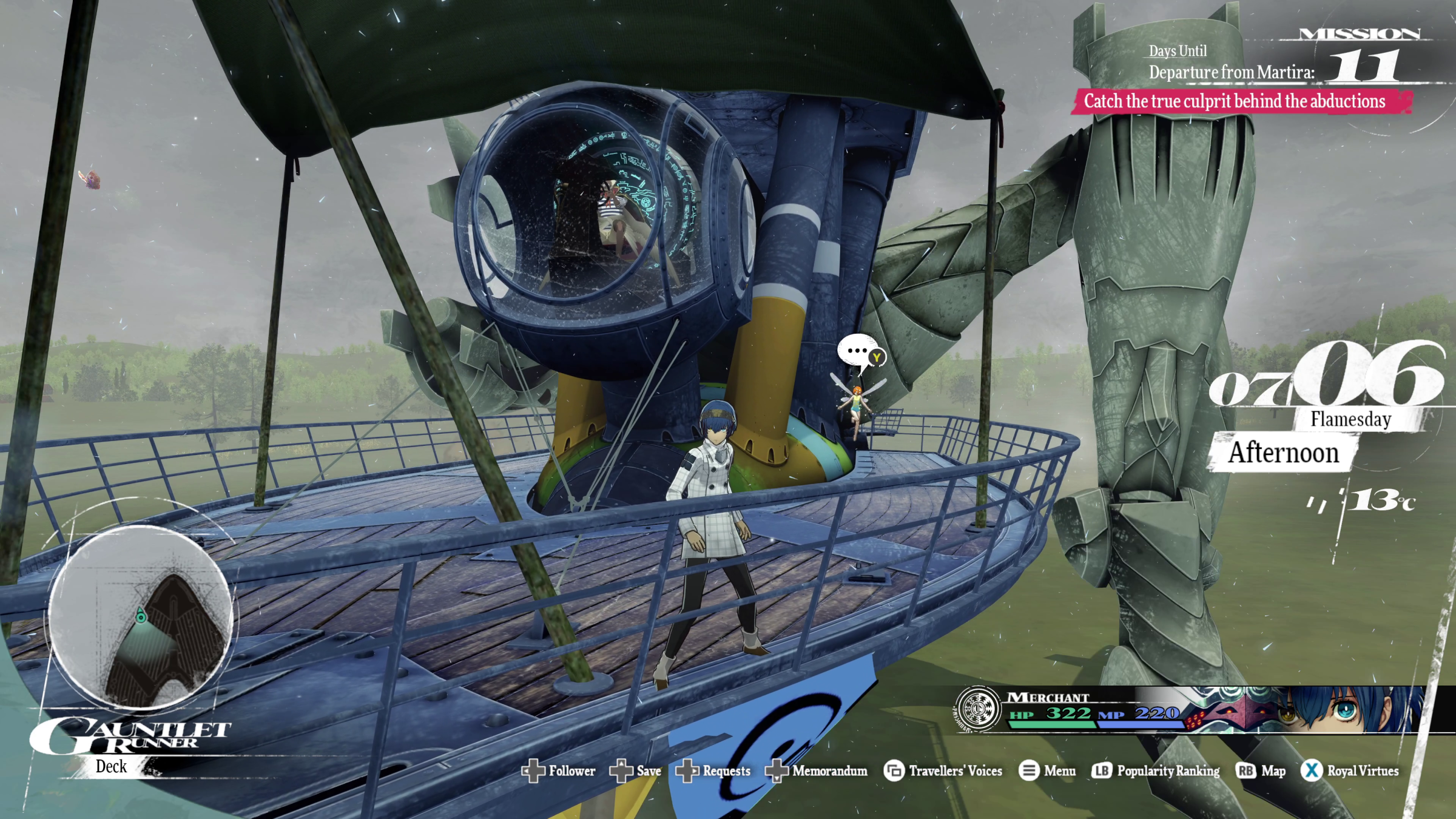Metaphor: ReFantazio shares DNA with Persona, but is a fascinating beast of its own
The new role-playing game from Atlus, Metaphor: ReFantaziostrikes an impressive balance for an ambitious project: it aims squarely at the loyal fans of the Persona and Shin Megami Tensei series, but simultaneously stands apart from the legacy of those games, making it very inviting to new players.
In other words, if you’ve ever been wary of jumping into Atlus’s massive, sometimes bizarre RPGs, Metaphor: ReFantazio is a great entry point. Game director Katsura Hashino calls the upcoming game a “third pillar” franchise for Atlus, and from what I’ve played, developer Studio Zero deserves bragging rights about the prospects of its new game.
Metaphor: ReFantazio‘s premise draws on familiar fantasy tropes: a beloved king has been murdered by a power-hungry general, and his succession is in question. The king’s only heir, a son, is missing and presumed dead. A noble young warrior seizes the opportunity, seeks revenge on the king’s murderer, and rallies a band of heroes to his cause.
Where Metaphor: ReFantazio What deviates from that formula is its layers, and its approach to revenge. The United Kingdom of Euchronia is a blend of Western fantasy and modern times. Characters fight with sword and shield and with a magic known as “magla,” a skill once thought to be limited to royalty. But Euchronia isn’t medieval; this is an industrialized society with technology and modern problems. Racism, tribalism, religious extremism, and concerns about protecting the border from a fearsome race of monsters known as humans — yes, really! — form the core of the game’s story.
That story also takes place against the backdrop of an election. A contest is being held to determine who will be the new king of Euchronia, and various candidates are vying for the favor of the populace, including the character you’re playing. In fact, I had a particularly intense and violent fight against a rival political candidate during my playthrough of the game. He explained his age-discriminatory tax and civil rights policies in a pre-fight speech, just before my crew beat him up. And that felt really good.
And while some heroes who stand next to the hero of Metaphor: ReFantazio He wants to find the king’s murderer and kill him. The hero’s revenge is based on the desire to defeat him fairly in democratic elections.
There is another layer Metaphor: ReFantazio which I didn’t fully understand during my hands-on time with the game. The main character (and his faerie sidekick Gallica) are reading a fantasy novel about another world that might be a “mirror” of Euchronia, and at one point the hero encounters the author of that novel, More, who lives in a liminal space called Akademia — a magical library that looks a bit like Persona’s Velvet Room.
Hashino said last yearwhen he announced the game, that his team is deliberately playing with the “underlying sense of connection between the (fantasy and modern) worlds.” Hashino has said that the game also evokes modern feelings of fear, and looks at fantasy stories as a way to explore solutions to real-world problems. However, he said that the fact that Metaphor: ReFantazio just before a new all-or-nothing election takes place in the US is not a commentary on that presidential race, but pure coincidence.
I played for about three hours Metaphor: ReFantazioon an Xbox Series X, in two parts. The first part was from the beginning of the game, where my nameless protagonist and his fairy begin their journey to the capital of Euchronia. There, they plan to secretly infiltrate the royal guard and meet a trusted contact to reveal incredibly important information: the king’s son is alive, but trapped in a magical spell.
On that path to joining the Royal Guard, which at this point will take everyone into its ranks, I meet a few allies, including Strohl, a fellow volunteer who comes from a noble family, and Hulkenberg, a former member of the royal Kingsguard who served as the fallen prince’s personal protector. In another bit of gameplay I sampled, I had a fuzzy warrior named Heismay in my party. Some allies seem to come and go from the party.
I fight alongside these characters and others against traitors to the king, wandering beasts, and terrifying humans, bizarre creatures inspired by—and in some cases taken directly from—the works of Dutch painter Hieronymus Bosch. Humans are grotesque, in a style consistent with the Persona developers’ other work. They’re bipedal creatures with shells that resemble eggshells. Or they’re just sentient teeth. Or they’re half-human, half-tree, like an early boss lifted straight from Bosch’s The Garden of Earthly DelightsHe was given the name Homo Gorleo and he thrashed his root-like legs around to attack me. To regain his health he ate apples from his own branches.
In the fight against these things, the protagonist learns about a special power within him. He has the ability to transform into an alternate form called an Archetype, a powerful being that can unleash special attacks and magical abilities. The hero can also unlock these abilities in his allies, and players will be able to freely experiment with over 40 Archetypes (mage, seeker, thief, gunner, healer, etc.), mixing and matching them by assigning roles to each party member in battle.
Combat feels dynamic. As noted in our previous hands-on preview with Metaphor: ReFantazioallows you to quickly attack enemies in the game to outmatch them before engaging in turn-based combat against your enemies. This feels exciting every time, as you try to sneak up on monsters and strike them before they have a chance to do the same to you. In turn-based combat, actions and attacks are fast; combat is lightning fast.
In addition to the familiar turn-based combat actions (e.g. melee attacks, spells, guarding), Metaphor: ReFantazio also has an attack option called Synthesis, a team-up ability that lets you combine the magic and Archetype abilities of two characters to attack at once, allowing you to target multiple enemies but at the cost of a party member’s turn. There seems to be a lot of flexibility and depth to Metaphor: ReFantazio‘s battles, with dozens of weapons, spells, Archetype scrolls, and a growing list of allies at your disposal.
After battles, you and your allies earn experience, which can be allocated to five stats: Strength, Magic, Endurance, Agility, and Luck. Your Archetypes can also grow and become stronger. But there’s another intriguing leveling system in Metaphor: ReFantazio that evolve your skills outside of combat. These are called Royal Virtues, and depending on the choices you make in interactions with other characters — your teammates and NPCs you meet — you’ll develop five other stats: Courage, Wisdom, Tolerance, Eloquence, and Imagination.
These Royal Virtues seem to help your character win the hearts and minds of Euchronians. By increasing your Eloquence, you become a better public speaker and thus more “electable” as king. Metaphor: ReFantazioAccording to the developers of the game, in some cases you will fight your political rivals physically, and in other cases you will meet them in other areas, such as speech contests. Unfortunately, I was not able to experience this fight myself.
In the second half of my hands-on time with the game, I was dropped into a save file that was much deeper into the game. After a few unfamiliar hours, I had a long list of quests on my plate, including several that would soon expire. With the election approaching, I realized that I couldn’t just hang around and run errands for other characters to earn their favor; I had to move on to my next destination.
Metaphor: ReFantazio features a huge world map, with dozens of characters to interact with and accompanying side activities that distract you from your main mission. The theme of fear seems to play a role here as well; you sometimes have limited time to get things done or save people, while also going about your grand campaign to become king. And just like in the Persona games, you have to nurture and maintain relationships (bonds) with your allies. These worries eat up valuable time as election day approaches. Playing a tactical board game with Hulkenberg to expand your imagination or sharpening your knives with Strohl to hone your wisdom steals time from doing optional side missions. You have to balance a lot of things to do your best and to please as many people as possible under time constraints.
But the prospect of that personal quest for revenge, as arduous and terrifying as it may be, is what Metaphor: ReFantazio so fascinating. With this amazing journey, combined with a deep turn-based combat system with incredible breadth and customization, a unique fantasy world, and a story of political upheaval, the developers behind Metaphor: ReFantazio appear to have something incredibly promising on their hands – something that will sit firmly alongside Atlus’ other, better-known RPG franchises.
Metaphor: ReFantazio will be released on October 11 for PlayStation 4, PlayStation 5, Windows PC, and Xbox Series X.




